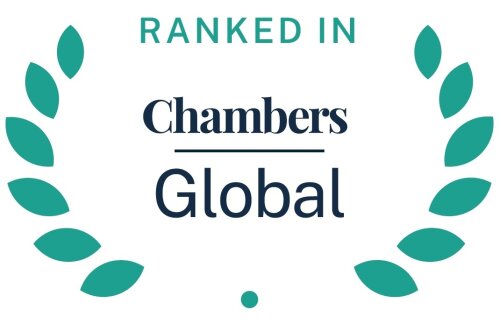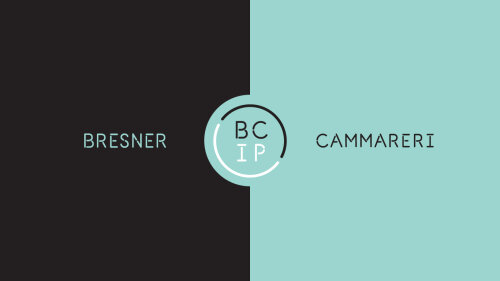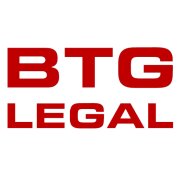Best Advertising and Marketing Lawyers in Milan
Share your needs with us, get contacted by law firms.
Free. Takes 2 min.
List of the best lawyers in Milan, Italy
About Advertising and Marketing Law in Milan, Italy
Advertising and Marketing law in Milan, Italy, pertains to the regulations that govern the promotion of products and services within the city and the broader Italian jurisdiction. This area of law aims to ensure truthfulness, fair competition, and consumer protection in marketing practices. Milan, being a global fashion and design capital, has a vibrant advertising scene that is subject to both national regulations and specific guidelines that address advertising content, misleading practices, and privacy matters concerning advertising communications.
Why You May Need a Lawyer
Individuals and businesses often require legal assistance in Advertising and Marketing for various reasons. Seeking advice becomes essential when launching advertising campaigns to ensure compliance with advertising standards and codes. Legal help may also be necessary when facing accusations of false or misleading advertising, understanding regulations concerning promotions and competitions, protecting intellectual property contained in advertising materials, and navigating the intricacies of online and social media advertising law, which includes issues related to data protection and privacy.
Local Laws Overview
Key aspects of local laws affecting Advertising and Marketing in Milan include the Legislative Decree 145/2007 (the "Italian Consumer Code"), which outlines the rules against misleading and comparative advertising. The Italian Data Protection Authority (Garante per la protezione dei dati personali) sets forth guidelines for the processing of personal data in marketing. Other essential laws include Legislative Decree 206/2005, which speaks to consumer protection, and specific industry-related guidelines, such as those imposed by the Italian Advertising Standards Authority (Autorità per le Garanzie nelle Comunicazioni) for responsible advertising practices.
Frequently Asked Questions
What constitutes false advertising in Italy?
False advertising, under Italian law, is any commercial communication that provides inaccurate, deceptive, or false information about a product or service, which can mislead the consumer. This includes making untrue claims about a product's characteristics, origin, or benefits.
Are there specific rules for advertising to children in Italy?
Yes, there are stringent regulations when it comes to advertising to children. Ads must not exploit their inexperience, be directly targeted at them to persuade their parents or guardians to purchase the advertised products or services, or cause them any moral or physical detriment.
Can I use comparative advertising in my marketing campaigns?
Comparative advertising is permissible in Italy, provided it is not misleading and compares goods or services meeting the same needs or intended for the same purpose. It must objectively compare one or more material, relevant, verifiable, and representative features of those goods and services, including price.
What are the consequences of non-compliance with advertising laws?
Non-compliance with advertising laws in Italy can lead to sanctions, fines, and the obligation to cease the infringing advertisement. In some cases, it can also lead to legal proceedings and damage restitution to wronged parties.
Is influencer marketing regulated in Milan?
Influencer marketing falls under the standard advertising regulations in Italy. Influencers must clearly disclose any commercial relationship or if content is sponsored to ensure transparency with the audience.
How are online and digital advertisements regulated?
Digital advertisements are regulated by the same principles governing traditional advertising, with additional considerations for privacy and data protection, especially about cookies and direct marketing through email or other electronic means.
Do I need to have my advertising pre-approved before publishing?
Pre-approval is not a general requirement for advertising in Italy; however, specific sectors like pharmaceuticals do require pre-approval. It's recommended to have legal review to ensure compliance with applicable laws.
What legal considerations are there for prize promotions and competitions?
Prize promotions and competitions are closely regulated. They require the drafting of a comprehensive set of rules, ensuring fairness and transparency, and in some cases, communication to the relevant authorities or payment of a security.
Can businesses self-regulate in the field of advertising?
Self-regulation is encouraged, and there is an established self-regulatory body, the Institute of Advertising Self-Regulation (Istituto dell'Autodisciplina Pubblicitaria), which issues rules and guidelines for responsible advertising.
How does the GDPR impact advertising in Milan?
The General Data Protection Regulation (GDPR) significantly impacts advertising by imposing strict rules about consent, transparency, and the rightful processing of personal data in advertising practices, particularly in digital marketing.
Additional Resources
For those seeking further information on advertising and marketing laws in Milan and Italy, the Istituto dell'Autodisciplina Pubblicitaria and the Italian Competition Authority (Autorità Garante della Concorrenza e del Mercato) are key resources. Additionally, the Italian Data Protection Authority provides guidance on privacy matters in advertising.
Next Steps
If you're in need of legal assistance in the field of Advertising and Marketing, consider taking the following steps:
- Identify a specialized lawyer or law firm with experience in Advertising and Marketing law.
- Gather all relevant materials and documentation related to your advertising campaign or issue.
- Schedule a consultation to discuss your situation and receive tailored legal advice.
- Follow your legal advisor's guidance to ensure your advertising activities are compliant with local laws and regulations.
Lawzana helps you find the best lawyers and law firms in Milan through a curated and pre-screened list of qualified legal professionals. Our platform offers rankings and detailed profiles of attorneys and law firms, allowing you to compare based on practice areas, including Advertising and Marketing, experience, and client feedback.
Each profile includes a description of the firm's areas of practice, client reviews, team members and partners, year of establishment, spoken languages, office locations, contact information, social media presence, and any published articles or resources. Most firms on our platform speak English and are experienced in both local and international legal matters.
Get a quote from top-rated law firms in Milan, Italy — quickly, securely, and without unnecessary hassle.
Disclaimer:
The information provided on this page is for general informational purposes only and does not constitute legal advice. While we strive to ensure the accuracy and relevance of the content, legal information may change over time, and interpretations of the law can vary. You should always consult with a qualified legal professional for advice specific to your situation.
We disclaim all liability for actions taken or not taken based on the content of this page. If you believe any information is incorrect or outdated, please contact us, and we will review and update it where appropriate.













